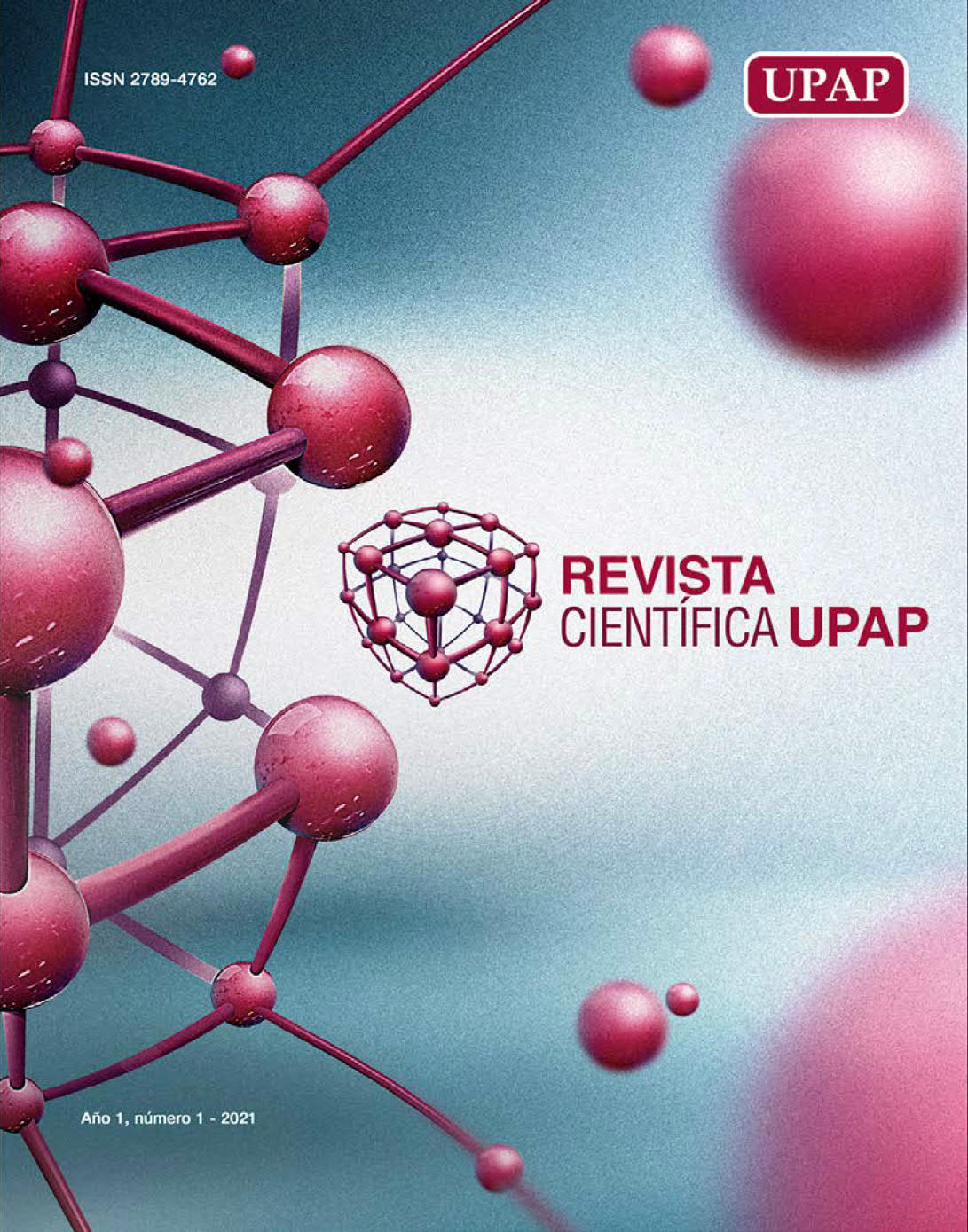Resumen
Gold nanoparticles (AuNPs) find a number of applications in many fields of electronics, catalysis, optics and biomedicine. This work reports a robust, fast and easy synthesis protocol, based on the Turkevich method to obtain AuNPs. Simple characterization techniques based on UV-Vis spectroscopy and transmission electronic microscopy are also reported. The resulting AuNPs presents properties at a nanometric scale, high purity and they may find potential uses in the treatment of cancer, antiviral and antibacterial agents and biosensors among others.
Citas
Agunloye, E., Panariello, L., Gavriilidis, A., & Mazzei, L. (2018). A model for the formation of gold nanoparticles in the citrate synthesis method. Chemical Engineering Science, 191, 318–331. doi: 10.1016/j.ces.2018.06.046
Alex, S., & Tiwari, A. (2015). Functionalized gold nanoparticles: Synthesis, properties and applications-A review. Journal of Nanoscience and Nanotechnology, 15(3), 1869–1894. doi:10.1166/jnn.2015.9718
Brust, M., Walker, M., Bethell, D., Schiffrin, D. J., & Whyman, R. (1994). Synthesis of thiol-derivatised gold nanoparticles in a two-phase liquid–liquid system. Journal of the Chemical Society, Chemical Communications, (7), 801-802. doi:org/10.1039/C39940000801
Chang, G., Shu, H., Ji, K., Oyama, M., Liu, X., & He, Y. (2014). Gold nanoparticles directly modified glassy carbon electrode for non-enzymatic detection of glucose. Applied Surface Science, 288, 524–529. doi: 10.1016/j.apsusc.2013.10.064
Chen, P. C., Mwakwari, S. C., & Oyelere, A. K. (2008). Chen, P. C., Mwakwari, S. C., & Oyelere, A. K. (2008). Gold nanoparticles: from nanomedicine to nanosensing. Nanotechnology, Science and Applications (1) 45–66 doi: 10.2147/nsa. s3707
Corma, A., & Garcia, H. (2008). Supported gold nanoparticles as catalysts for organic reactions. Chemical Society Reviews, 37(9), 2096–2126. doi:10.1039/b707314n
Draz, M. S., & Shafiee, H. (2018). Applications of gold nanoparticles in virus detection. Theranostics, 8(7), 1985–2017. doi:10.7150/thno.23856
Du, Y., Luo, X., Xu, J., & Chen, H. (2007). A simple method to fabricate a chitosan-gold nanoparticles film and its application in glucose biosensor, Bioelectrochemistry, 70(2), 342-347. doi: 10.1016/j.bioelechem.2006.05.002
Dykman, L. A., Staroverov, S. A., Bogatyrev, V. A., & Shchyogolev, S. Y. (2010). Adjuvant Properties of Gold Nanoparticles. Nanotechnologies in Russia, 5(11-12), 748-761. doi:10.1134/S1995078010110029
Faraday, M. (1857). X. The Bakerian Lecture. —Experimental relations of gold (and other metals) to light. Philosophical Transactions of the Royal Society of London, (147), 145-181. doi:10.1098/rstl.1857.0011
Hainfeld, J. F., Slatkin, D. N., Focella, T. M., & Smilowitz, H. M. (2006). Gold nanoparticles: A new X-ray contrast agent. British Journal of Radiology, 79(939), 248–253. doi:10.1259/bjr/13169882
Han, G., Ghosh, P., & Rotello, V. M. (2007). Functionalized gold nanoparticles for drug delivery. Nanomedicine 2(1), 113–123. doi:10.1098/rstl.1857.0011
Herizchi, R., Abbasi, E., Milani, M., & Akbarzadeh, A. (2016). Current methods for synthesis of gold nanoparticles. Artificial cells, nanomedicine, and biotechnology, 44(2), 596-602. doi:10.3109/21691401.2014.971807
Huang, C., Wen, T., Shi, F. J., Zeng, X. Y., & Jiao, Y. J. (2020). Rapid Detection of IgM Antibodies against the SARS-CoV-2 Virus via Colloidal Gold
Nanoparticle-Based Lateral-Flow Assay. ACS Omega. 5(21), 12550–12556. doi:10.1021/acsomega.0c01554
Huang, X., & El-Sayed, M. A. (2011). Plasmonic photo-thermal therapy (PPTT). Alexandria Journal of Medicine, 47(1), 1–9. doi: 10.1016/j.ajme.2011.01.001
Huang, X., Jain, P. K., El-Sayed, I. H., & El-Sayed, M. A. (2007). Gold nanoparticles: Interesting optical properties and recent applications in cancer diagnostics and therapy. Nanomedicine, 2(5), 681–693. doi:10.2217/17435889.2.5.681
Jena, B. K., & Raj, C. R. (2006). Electrochemical biosensor based on integrated assembly of dehydrogenase enzymes and gold nanoparticles. Analytical Chemistry, 78(18), 6332–6339. doi:org/10.1021/ac052143f
Kimling, J., Maier, M., Okenve, B., Kotaidis, V., Ballot, H., & Plech, A. (2006). Turkevich method for gold nanoparticle synthesis revisited. Journal of Physical Chemistry B, 110(32), 15700–15707. doi:10.1021/jp061667w
Kumar, A., Mazinder Boruah, B., & Liang, X. J. (2011). Gold nanoparticles: promising nanomaterials for the diagnosis of cancer and HIV/AIDS. Journal of Nanomaterials, 2011. doi:10.1155/2011/202187
Liu, Q., & Zhou, C. (2018). Highly Sensitive and Wearable In2O3 Nanoribbon Transistor Biosensors with Integrated On-chip Side Gate for Glucose Monitoring in Body Fluids. APS, 2018, H01-006. doi:10.1021/acsnano.7b06823
Lopes, T. S., Alves, G. G., Pereira, M. R., Granjeiro, J. M., & Leite, P. E. C. (2019). Advances and potential application of gold nanoparticles in nanomedicine. Journal of cellular biochemistry, 120(10), 16370-16378. doi:10.1002/jcb.29044
Luo, X. L., Xu, J. J., Du, Y., & Chen, H. Y. (2004). A glucose biosensor based on chitosan–glucose oxidase–gold nanoparticles biocomposite formed by one-step electrodeposition. Analytical Biochemistry, 334(2), 284-289. doi:10.1016/j.ab.2004.07.005
Magnusson, M. H., Deppert, K., Malm, J. O., Bovin, J. O., & Samuelson, L. (1999). Gold nanoparticles: Production, reshaping, and thermal charging. Journal of Nanoparticle Research, 1(2), 243–251. doi:10.1023/A:1010012802415
Medhi, R., Srinoi, P., Ngo, N., Tran, H., & Lee, T. R. (2020). Nanoparticle-Based Strategies to Combat COVID-19. doi:10.1021/acsanm.0c01978
Moitra, P., Alafeef, M., Dighe, K., Frieman, M., & Pan, D. (2020). Selective Naked-Eye Detection of SARS-CoV-2 Mediated by N Gene Targeted Antisense Oligonucleotide Capped Plasmonic Nanoparticles. ACS nano. doi:10.1021/acsnano.0c03822
Turkevich, J. (1985). Colloidal gold. Part II. Gold bulletin, 18(4), 125-131. doi:10.1007/bf03214690
Turkevich, J., Stevenson, P. C., & Hillier, J. (1951). A study of the nucleation and growth processes in the synthesis of colloidal gold. Discussions of the Faraday Society, 11, 55-75. doi:10.1039/DF9511100055
Verma, H. N., Singh, P., & Chavan, R. M. (2014). Gold nanoparticle: synthesis and characterization. Veterinary world, 7(2), 72. doi:10.14202/vetworld.2014.72-77
Yang, T., Luo, Z., Tian, Y., Qian, C., & Duan, Y. (2020). Design strategies of AuNPs-based nucleic acid colorimetric biosensors. TrAC - Trends in Analytical Chemistry, 124, 115795. doi: 10.1016/j.trac.2019.115795
Zeng, S., Yong, K. T., Roy, I., Dinh, X. Q., Yu, X., & Luan, F. (2011). A Review on Functionalized Gold Nanoparticles for Biosensing Applications. Plasmonics, 6(3), 491–506. doi:10.1007/s11468-011-9228-1
Zeng, X., Zhang, Y., Du, X., Li, Y., & Tang, W. (2018). A highly sensitive glucose sensor based on a gold nanoparticles/polyaniline/multi-walled car-
bon nanotubes composite modified glassy carbon electrode. New Journal of Chemistry, 42(14), 11944–11953. doi:10.1039/C7NJ04327A
Zhao, P., Li, N., & Astruc, D. (2013). State of the art in gold nanoparticle synthesis. Coordination Chemistry Reviews, 257(3-4), 638-665. doi:10.1016/j.ccr.2012.09.002.

Esta obra está bajo una licencia internacional Creative Commons Atribución 4.0.
Derechos de autor 2021 Revista Científica UPAP


